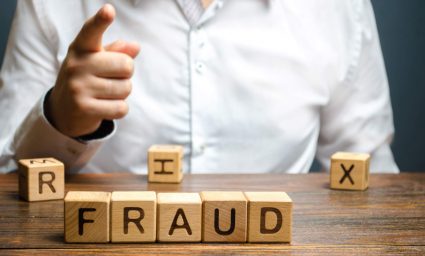 Navigating through financial difficulties can leave you feeling overwhelmed and eager for solutions that promise to alleviate your burdens. During such trying times, it’s common to encounter offers that seem generous, making them difficult to resist. While we consistently caution against high-interest payday loans or excessive debt accumulation, it’s crucial to maintain a skeptical mindset, especially when faced with seemingly legitimate financial assistance options. Often, what may appear to be an opportunity for financial relief is actually a carefully crafted scheme by deceitful scammers looking to exploit your financial vulnerability.
Navigating through financial difficulties can leave you feeling overwhelmed and eager for solutions that promise to alleviate your burdens. During such trying times, it’s common to encounter offers that seem generous, making them difficult to resist. While we consistently caution against high-interest payday loans or excessive debt accumulation, it’s crucial to maintain a skeptical mindset, especially when faced with seemingly legitimate financial assistance options. Often, what may appear to be an opportunity for financial relief is actually a carefully crafted scheme by deceitful scammers looking to exploit your financial vulnerability.
Currently, numerous scams are specifically designed to prey on individuals’ financial vulnerabilities, emphasizing the importance of being alert and well-informed. A key principle for spotting scams is simple: if an offer seems too good to be true, it likely is. This comprehensive guide aims to educate you about various scams targeting those experiencing financial hardships, equipping you with the necessary knowledge to differentiate between authentic opportunities and deceptive schemes that could lead to significant losses.
Understand Your Rights When Claiming Tax Refunds
When it comes to claiming tax refunds for eligible expenses like work-related tools, uniforms, and mileage, there are legitimate channels available. However, undertaking this process typically involves working with a tax rebate services provider, which necessitates granting them access to your tax records. It’s vital to recognize that no governmental agency, including HMRC, can accurately determine your entitled refunds without your active involvement or consultation with a qualified accountant. Therefore, be wary of unsolicited messages claiming that “HMRC has a tax refund of £261 waiting for you.” Such messages often present believable figures, artfully avoiding the outrageous claims typical of other scams, like the infamous Nigerian Prince schemes. Instead, these communications may lead you to sites where you could unintentionally disclose sensitive information, resulting in identity theft or severe financial repercussions.
To verify whether a communication is a scam, meticulously examine the sender’s details. If you receive a text, check the originating phone number for authenticity. It’s advisable to refrain from responding to such messages and consider reaching out to HMRC directly for confirmation. Keep in mind that HMRC generally communicates through letters or emails sent to your registered address, rather than unsolicited text messages. Furthermore, you now have the ability to access your own online tax account, where you can view notifications directly from HMRC. If you receive an email, scrutinize the sender’s address carefully; it should originate from an official HMRC domain. Always avoid clicking on links included in suspicious messages.
How to Recognize and Avoid the National Insurance Number Scam
Recent reports, including those from the Daily Express, have highlighted the prevalence of the National Insurance scam, which commonly operates through phone calls. This method is distinct as scammers may contact you on either your landline or mobile phone. The scam often begins with an alarming message asserting that your national insurance number has been compromised. This fear-inducing tactic is designed to instill panic, persuading you to press a button to connect with someone who can help. However, doing so frequently results in incurring a premium rate for the call while scammers collect your personal information.
To ascertain whether such a call is a scam, remember that legitimate organizations will never request that you press a button to continue the conversation. If you are uncertain, simply hang up and perform a quick online search for the phone number. A brief investigation can often reveal whether the number is associated with known scams, empowering you to safeguard your personal information.
Recognizing and Protecting Against DPD or UPS Delivery Scams
A prevalent scam involves receiving unsolicited texts or emails that claim a parcel is awaiting your action. These messages typically prompt you to click on a link to provide personal information, which is a significant red flag for potential fraud. To protect yourself, carefully examine the source of the email. Scammers often use distorted or unusual email addresses that do not align with legitimate businesses. Additionally, verify any recent orders you’ve made on platforms like Amazon or eBay; these platforms usually offer extensive tracking information.
It’s also important to remember that while carriers like DHL may charge duties on international shipments, they will always provide you with specific details regarding your shipment and its origin. If you receive vague messages concerning package deliveries without having placed prior orders, exercise extreme caution. Staying informed about personal finance scams is essential to safeguard against falling victim to such schemes. If financial difficulties make these scams seem appealing, don’t hesitate to reach out to us; we can assist you with our debt consolidation loans for bad credit. We are here to help you navigate your financial challenges securely and effectively.
The Article Finance Scams to Watch Out For Was Found On https://limitsofstrategy.com


Your insights on the perils of financial scams resonate deeply with me, especially given the current economic climate where many are wrestling with financial hardships. It’s alarming how sophisticated these scams have become, often masquerading as legitimate solutions, which makes it even more crucial for individuals to remain vigilant.